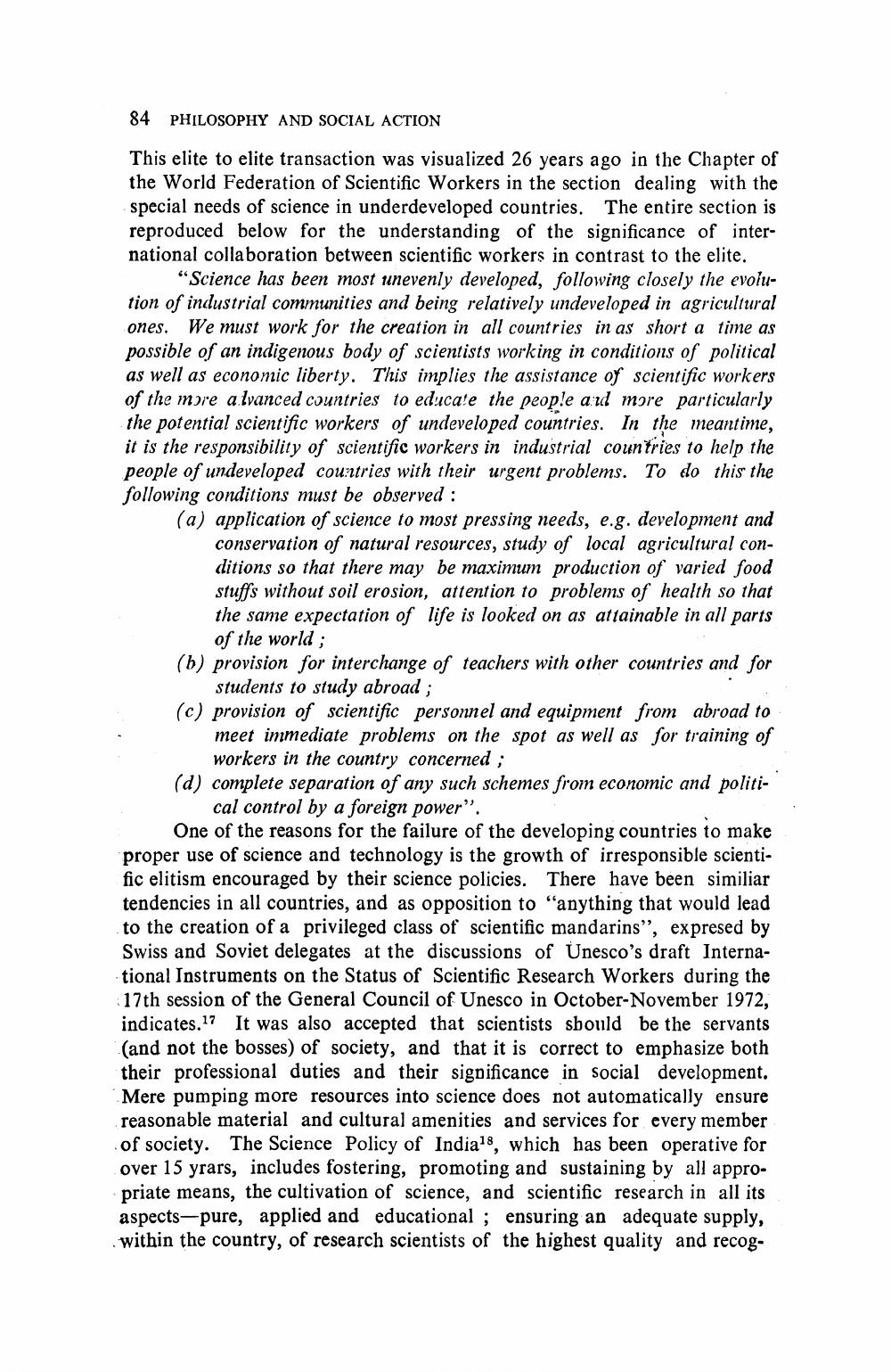Book Title: Management Of Scientific Research In Developing Countries Author(s): Ram Prasad Publisher: Ram Prasad View full book textPage 8
________________ 84 PHILOSOPHY AND SOCIAL ACTION This elite to elite transaction was visualized 26 years ago in the Chapter of the World Federation of Scientific Workers in the section dealing with the special needs of science in underdeveloped countries. The entire section is reproduced below for the understanding of the significance of international collaboration between scientific workers in contrast to the elite. “Science has been most unevenly developed, following closely the evolution of industrial communities and being relatively undeveloped in agricultural ones. We must work for the creation in all countries in as short a time as possible of an indigenous body of scientists working in conditions of political as well as economic liberty. This implies the assistance of scientific workers of the more a Ivanced countries to educate the people and more particularly the potential scientific workers of undeveloped countries. In the meantime, it is the responsibility of scientific workers in industrial countries to help the people of undeveloped countries with their urgent problems. To do this the following conditions must be observed : (a) application of science to most pressing needs, e.g. development and conservation of natural resources, study of local agricultural conditions so that there may be maximum production of varied food stuffs without soil erosion, attention to problems of health so that the same expectation of life is looked on as attainable in all parts of the world; (b) provision for interchange of teachers with other countries and for students to study abroad; (c) provision of scientific personnel and equipment from abroad to meet immediate problems on the spot as well as for training of workers in the country concerned ; (d) complete separation of any such schemes from economic and politi cal control by a foreign power". One of the reasons for the failure of the developing countries to make proper use of science and technology is the growth of irresponsible scientific elitism encouraged by their science policies. There have been similiar tendencies in all countries, and as opposition to "anything that would lead to the creation of a privileged class of scientific mandarins", expresed by Swiss and Soviet delegates at the discussions of Unesco's draft International Instruments on the Status of Scientific Research Workers during the 17th session of the General Council of Unesco in October-November 1972, indicates. 17 It was also accepted that scientists should be the servants (and not the bosses) of society, and that it is correct to emphasize both their professional duties and their significance in social development. Mere pumping more resources into science does not automatically ensure reasonable material and cultural amenities and services for every member of society. The Science Policy of Indians, which has been operative for over 15 yrars, includes fostering, promoting and sustaining by all appropriate means, the cultivation of science, and scientific research in all its aspects-pure, applied and educational ; ensuring an adequate supply, within the country, of research scientists of the highest quality and recogPage Navigation
1 ... 6 7 8 9 10 11
